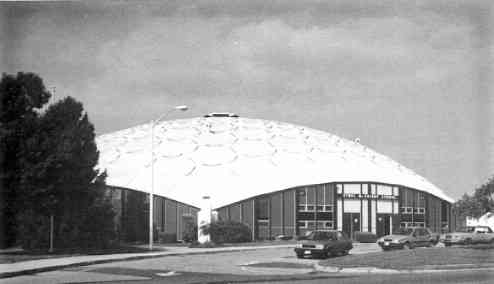Man, where to begin with this. So many points brought up I don't where to start. Full disclosure I am a 7th grade public education teacher so of course I am to be biased, however I am also what I think to be an intelligent social studies teacher who understands the bigger picture.
I also happen to be about ready to wrap up a dual Masters degree in Special Education and Culturally and Linguistically Diverse Education, and to procrastinate on writing a paper I should be writing I will write on here instead.
Some posts have discussed the effects of culture on learning and parent/community involvement. It definitely will impact a child's learning, however it goes deeper than just the culture. There are barriers to collaboration and involvement that go beyond a person's culture. You have to look at their social capital, how they perceive the school system based on their own personal experiences with the school system, how they have been treated by teachers and the school as adults and parents, time barriers such as work commutes and second jobs. That being said if their original culture and upbringing sees schooling as the job of the teacher, then you have to make great efforts to meet with them and collaborate on how to do what is best for their child and it won't always be how to get a higher test score or what the teacher thinks is best. Are there families that just don't care about their children's education, yes there are, but they were around since the start of the school system. People have priorities and they aren't always what you want.
Memorization shouldn't really be what is happening in school these days. Yes, vocabulary or formulas need to be memorized and basic level info needs to be stored so that you can understand the deeper level concepts, but most schools have moved away from rote memorization, especially by late elementary and middle school. The focus with standards and common core is concepts and understanding how and why things are, not just accepting the fact and using it. I would be surprised if a school still focused on this. If you don't believe me, get a visitors badge and go in for a day and observe. You are paying for it, see where you money goes.
Will money solve everything? No, and I don't think there many, if any, situations where money would solve the problem. Would it help? Yes. Poor urban schools are at a complete disadvantage in the technology and quality of teacher they can get. If you can make the schools equitable then you can increase the likelihood that the students will succeed.
It has also been shown that the number one factor to a child's academic success is not their genes, or their family's involvement, or how nice the school is, it is the quality of the teacher. Just because you have a good heart and want to help children doesn't make you a great teacher. If you want great teachers to stick around you had better make sure that you show that you appreciate them. And yes paying a livable wage helps. Right now in CO, which is absurdly low in public education funding, a teacher can have their own kids qualify for free and reduced lunch. I personally will have a Masters, 7 years of experience at the same job and still make under 40K. (My class sizes are usually 29-35 students, this is the first year I have all classes under 30, and I put in no less than 12 hour days at the actual school building). I am not complaining or bragging because I could be a better teacher and still need to get better, but in the end you can only bend so much.
I also agree that teacher unions are not the solution. They allow bad teachers to stay in business. I cannot think of another job where you don't have to have a performance review that is tied into how much you earn or if you get to keep your job. The teachers that complain about losing tenure are most likely the ones who would be fired.
To those that complain about your taxes being wasted, that is fine. Put your kids in private schools, do not drive on public roads, do not use public land such as parks, national forests, etc. Do not worry about the future generations that will take care of you or solve the problems you created. I pay taxes just like you except the only difference is that I actually have to pay money into my own account. Hmmmm shouldn't I be the one complaining about having to pay my own salary?
Also the continuing use of "all" or "every" or the anecdotal experience to stereotype the circumstances around education should stop. Public education is not an entity that is the same from school to school in the same district let alone state to state.
The problem with education is that there are lots of problems with education and like anything that is not perfect people want to find the singular cure-all for it. People want to blame whatever side they are not on for the problem. Instead of arguing about what causes the problem, people should come together to figure out how the solutions can be accomplished.
Sometimes those problem solving skills come from figuring out how to engineer a robot to fight another robot. Let the robots do the fighting.
Rant over




























![Craft A Brew - Safale BE-256 Yeast - Fermentis - Belgian Ale Dry Yeast - For Belgian & Strong Ales - Ingredients for Home Brewing - Beer Making Supplies - [3 Pack]](https://m.media-amazon.com/images/I/51bcKEwQmWL._SL500_.jpg)




















